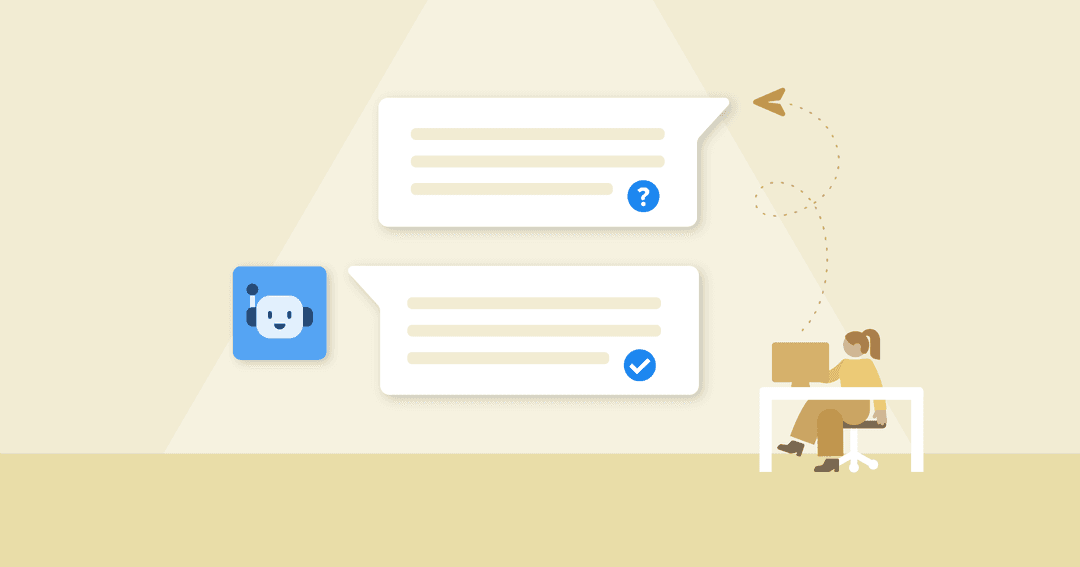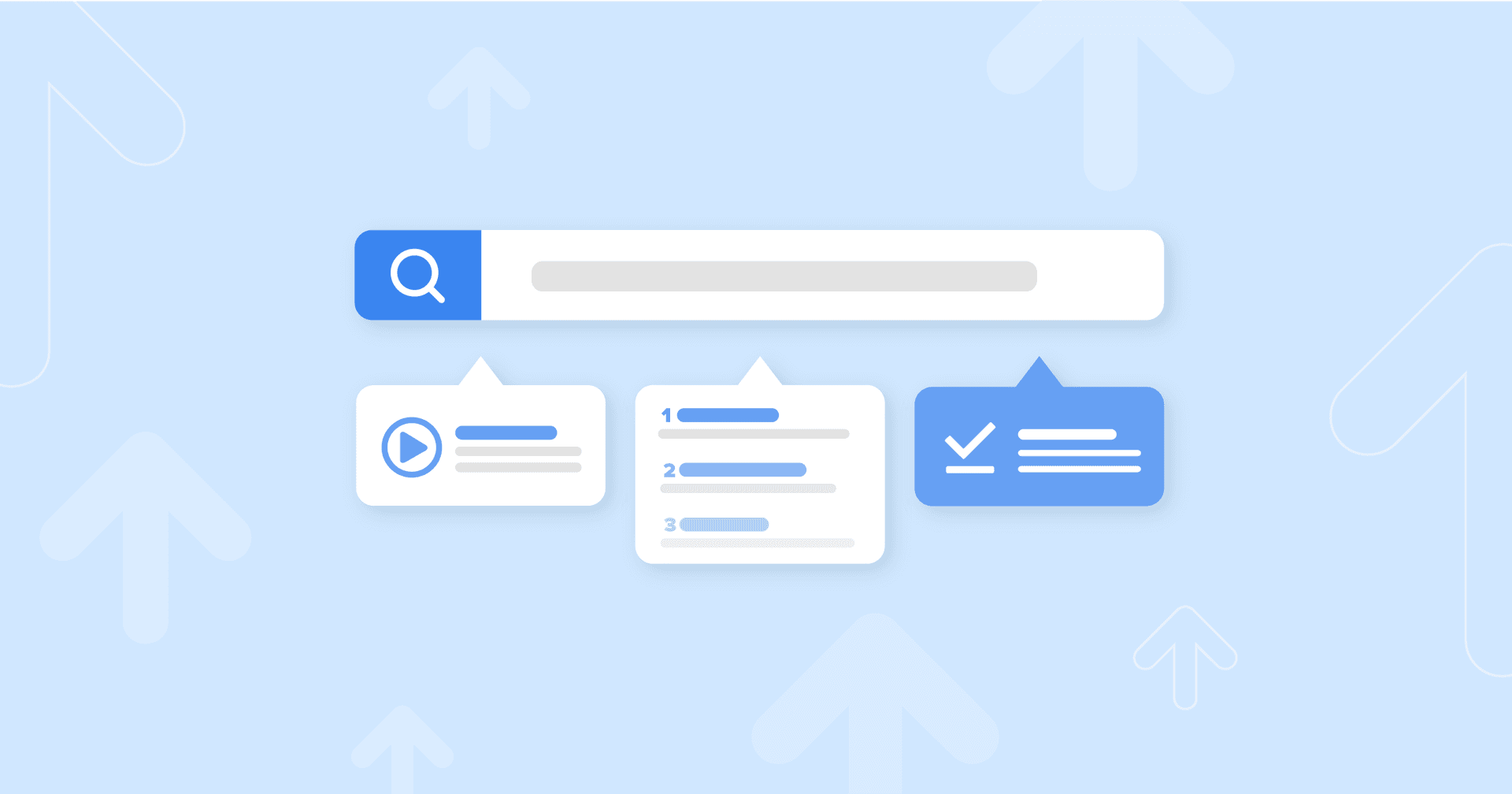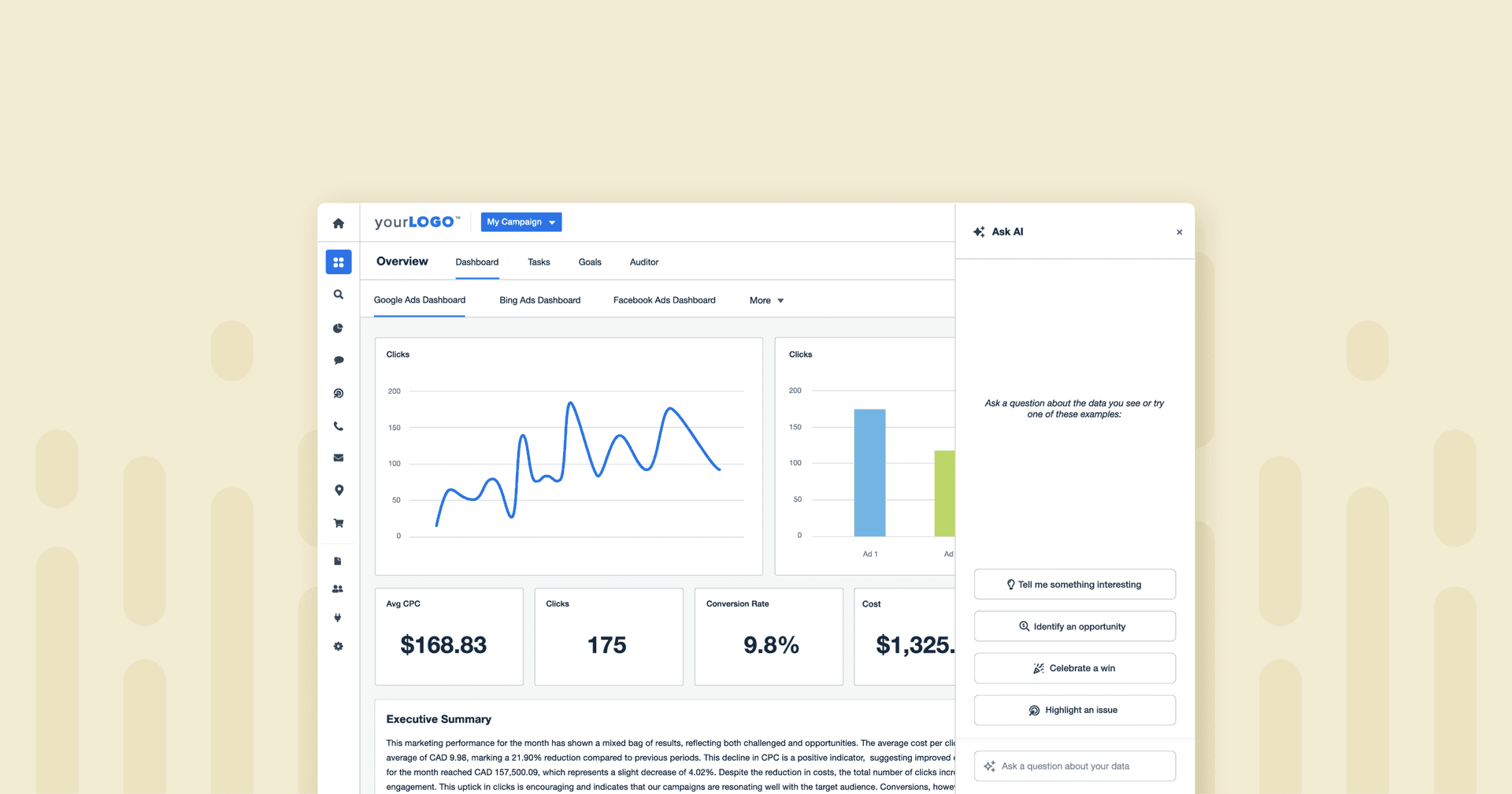Table of Contents
QUICK SUMMARY:
Learn about marketing agency jobs that AI will replace, enhance, or create to understand the technology’s transformative impact on creative professionals. This article explores AI vs. marketing agencies within the context of job replacements like data entry, enhancements in content creation, and the creation of new roles, such as AI ethics officers. Discover how AI is reshaping efficiency, productivity, and the future of marketing agency jobs.
According to the 2023 AgencyAnalytics Benchmarks Report, 78% of marketing agencies were already using AI for content creation. By 2024, that number was predicted to jump to 91%. If your agency isn’t already leveraging AI, chances are it’s on the horizon in the near future.
AI technologies have taken many industries by storm and left marketing agencies both exhilarated and exasperated as human marketers navigate these new changes. Still, it’s easy to see the benefits of adopting AI within the agency environment (namely, efficiency and time savings).
This article covers everything you need to know about the current state of artificial intelligence within the agency context and how AI tools for marketing agencies will impact jobs in 2024 and beyond.
Let's get started.
The Current Impact of AI on Marketing Jobs
If you find yourself tempted to Google “What jobs will AI replace in marketing?”, don’t worry–you’re not alone. From graphic designers to content creators and copywriters, the possibility of AI replacing creative jobs and the far-reaching implications of this shift on the marketing world cannot be overlooked.
While it’s true that past iterations of AI creativity have generated unimpressive results, recent developments have improved by leaps and bounds. The subtle nuances of emotion and colloquial sentiment that were previously attributed strictly to human creativity can now be mostly achieved by AI.
Take a look at the evolution of images generated by artificial intelligence between 2014 and 2022:
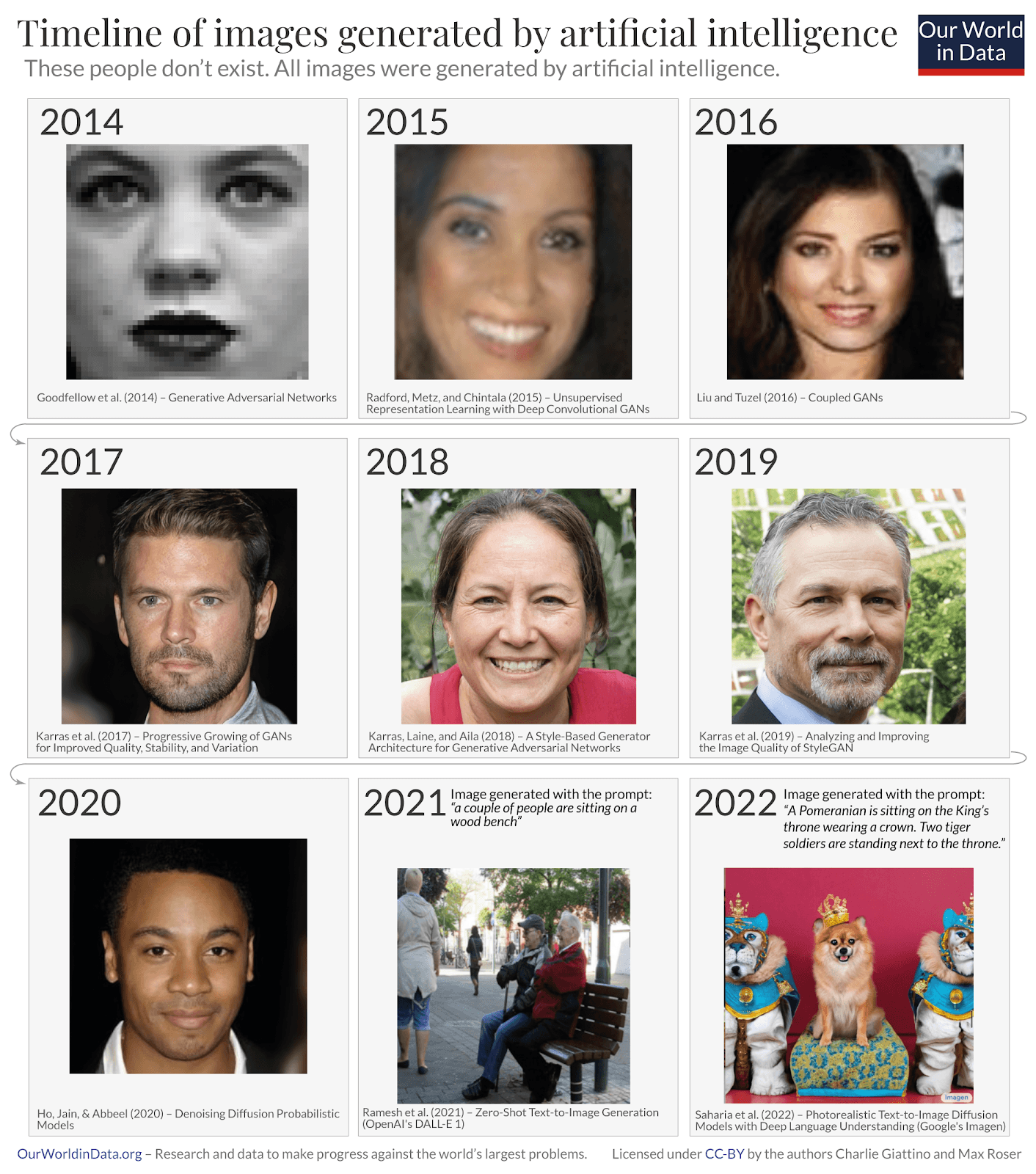
Compare the pixelated, black-and-white images of 2014 to the technological advancements of 2022 AI-generated images. It’s clear that the results have improved substantially, both in complexity and realism. Care to see a Pomeranian king and some tiger soldiers? AI’s got you covered.
But ask AI to create an image of what a cross between a shark and a horse would look like, and you end up with the stuff of nightmares.
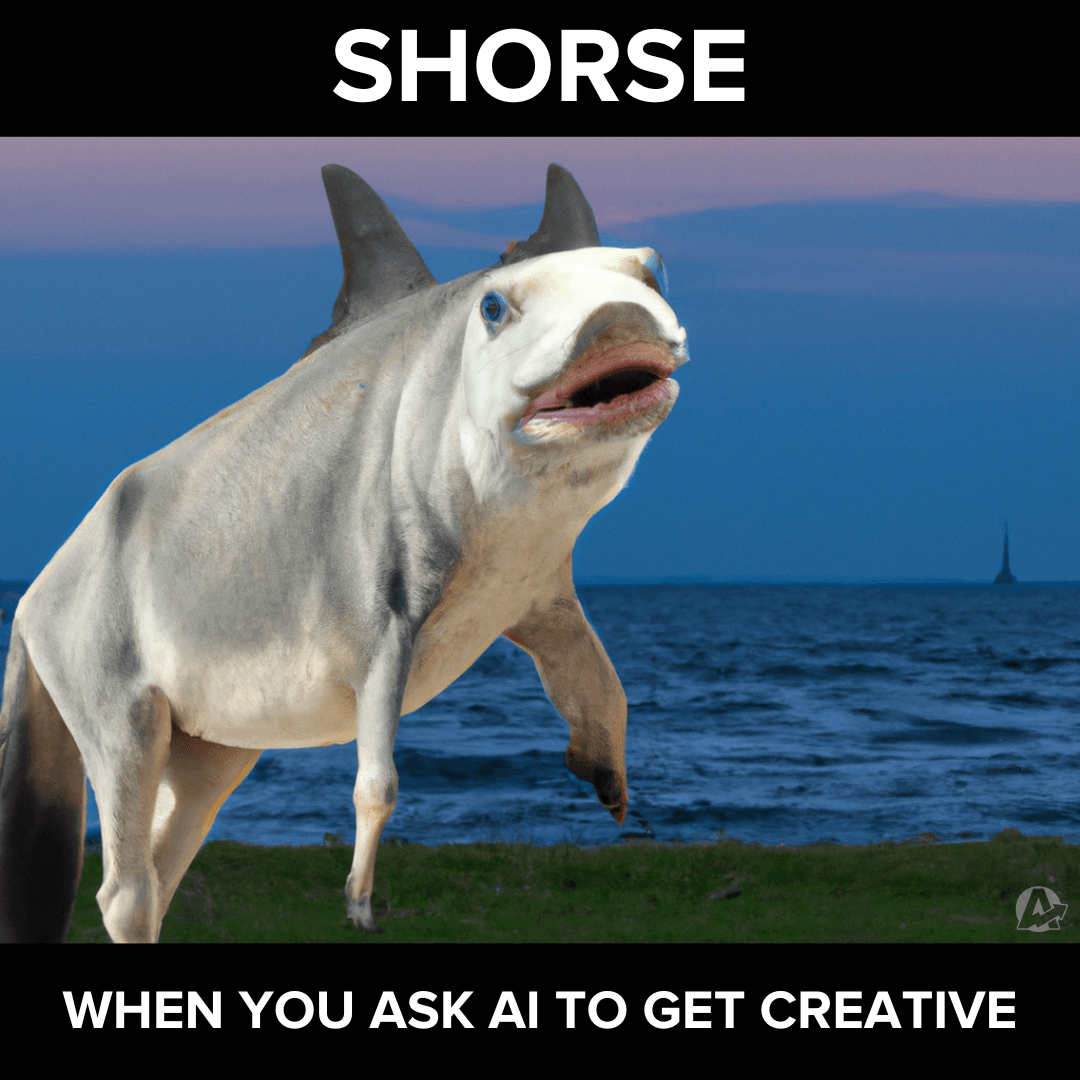
Copywriting is another area that has already seen shifts. In 2019, JPMorgan Chase signed a five-year deal with the AI tool Persado Inc. to supplement their copywriters. The decision follows initial trials in which machine learning outperformed human copywriters. In one case, Persado’s AI-generated headline resulted in 47 applications for home equity lines of credit vs. 25 for the human-generated headline.
In September of 2024, Persado announced it had driven more than $2.5 billion in additional incremental revenue for large financial services organizations like Chase, Ally Bank, and LendingClub in the past five years.
We are at the forefront of a revolution in how we work in all industries and live our lives. This is an exciting time that should be embraced, not feared. AI can make digital marketing agencies look smarter and deliver better returns for clients than we ever have before.
Bill Hipsher, President, Hurrdat
AI is making strides in comprehending colloquial nuances in language that can be applied to translation services. Microsoft, for instance, has been working on its artificial intelligence translator for a while now. It can now translate 129 languages (and counting).
Or take a look at these glasses from a UK company, XRAI, which caption and translate conversations in real time.
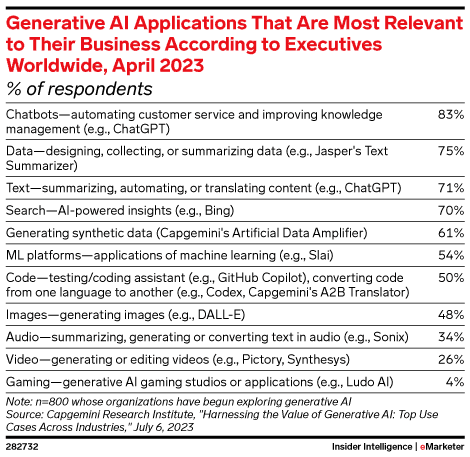
While it’s clear that AI is here to stay, it’s worth noting that in 2024, generative AI technology still lacks some significant traits: it struggles with tasks that require emotional intelligence, grasp situational context, make nuanced judgment calls, and interpret meaning in the same way humans do.
To this extent, while some agency jobs are likely to be eventually replaced by AI, in the current marketing landscape, most jobs will be simply enhanced. We can also see how AI is creating brand new roles, opening up possibilities for forward-thinking marketers.
One thing is clear: Change is in the air, and marketing agencies (and agency partners) must be ready to embrace that change. Start by auditing your agency software stack to support AI‑assisted workflows.
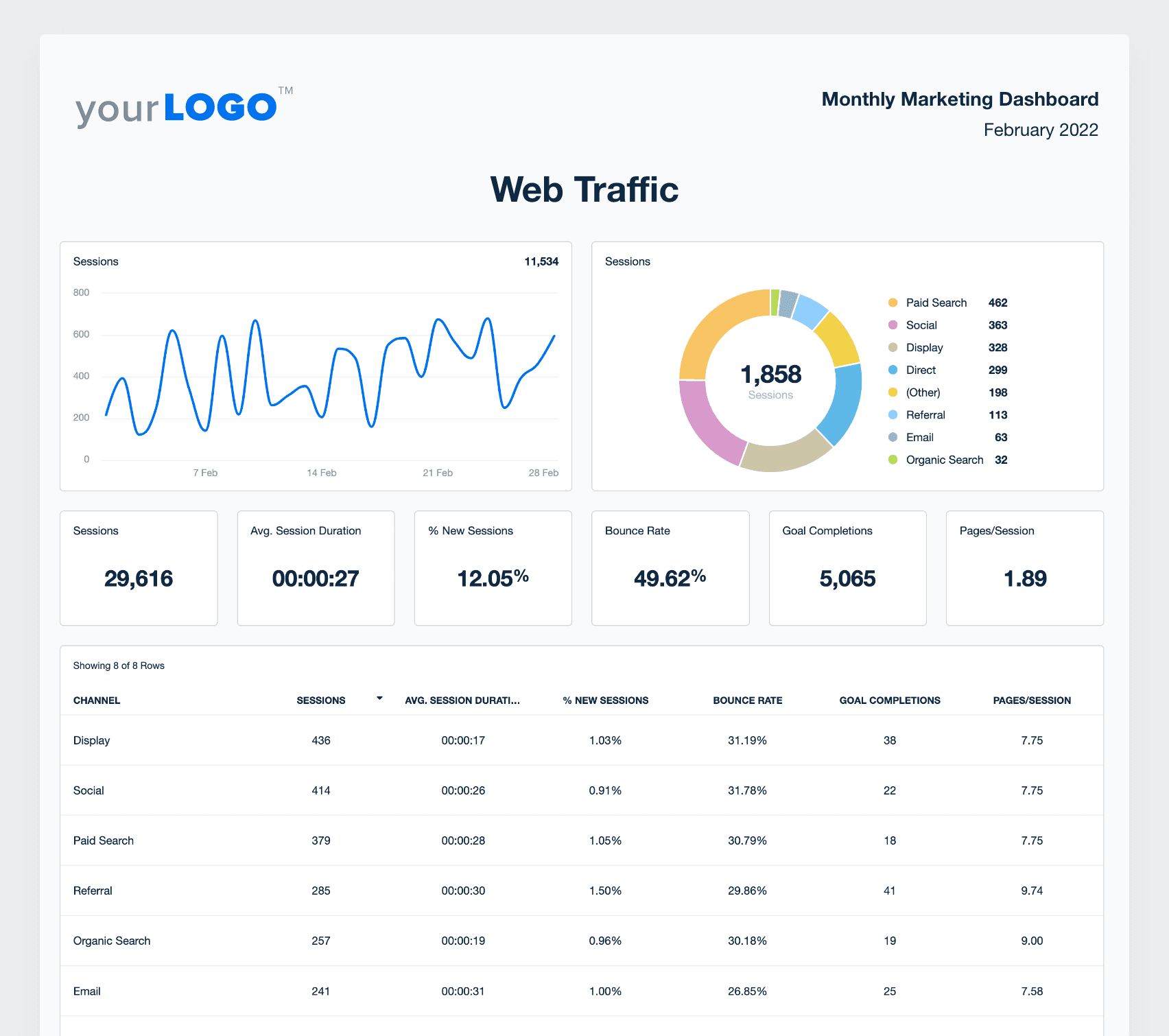
Stay competitive in the rapidly evolving marketing industry with professional reports that your clients will understand. Start your free 14-day trial today.
What Jobs Will AI Replace At Marketing Agencies?
Let’s examine how implementing AI impacts specific marketing agency jobs and make some predictions about how it could affect jobs in the near future.
We’re looking at using automation to help huge publication clients who want to create thousands of pieces of content and how our team can achieve that at scale. There are clients who need that amount of content to rank and stay competitive. We want to help them reach their target audience but not put their business at risk.
Brock Murray, Co-Founder and COO, seoplus+
We’ll begin by addressing the elephant in the room: the jobs most likely to be replaced by AI. The good news is that for many roles likely to be replaced, there is a near-equivalent role using AI available to job seekers willing to pivot.
If you find your job title in this list, don’t fret. Set the intention to learn more about AI within your specific tasks and begin familiarizing yourself with relevant tools. This way, you’ll be prepared for whatever the future holds.
Data and Market Analysts
AI-powered automation tools are transforming the game by taking over data analysis tasks. These tools handle tasks more efficiently, eliminate human error, and deliver a degree of accuracy that surpasses manual tracking. As a result, it’s possible to predict that market research analysts will become increasingly uncommon in the coming years.
AI strategists, on the other hand, are likely to emerge at the forefront of job growth, as most clients will still need a marketing agency to optimize their campaigns.
These experts, skilled in understanding and harnessing AI capabilities, will be crucial in extracting relevant data, developing strategies to effectively use AI analysis to achieve marketing goals, and guiding agencies in adopting AI systems to drive efficiency and generate superior results for clients.
Marketing agencies should embrace automation, invest in data-driven strategies, and utilize AI-powered analytics. AI can help marketing agencies become more efficient and effective, it can help better understand their customer base, measure the performance of their campaigns, and deliver insights.
Anatoly Zadorozhnyy, Director of Search, Softline Solutions
Junior Copywriters
AI has proven its ability to create engaging, creative content. Anyone who has used ChatGPT to drum up some headline options can attest to the fact that the tool can deliver. For this reason, we can predict that most minor copywriting tasks will be outsourced to AI in the future.
That said, human creativity and editing skills are still crucial to ensuring the quality, relevance, and brand alignment of AI-generated copy. That’s where your AI Content Curator (or AI Editor, if you will) comes into play.
AI content curators and editors will collaborate with AI systems to fine-tune and enhance the content generated, providing a human touch and maintaining the brand's voice. Rather than employing an army of junior content writers, it’s reasonable to predict that creative agencies may choose to retain a handful of AI Editors who can utilize their keen eye to polish AI-generated content before it reaches the market.
Admin and Virtual Assistants
The ability to leverage AI to create and execute custom workflows means that many of the tasks previously delegated to virtual assistants may be at risk. Now that it’s possible to program a process that automatically pulls data from desired sources and inputs it into others or to book appointments and manage schedules, virtual assistants could become increasingly less common.
Further, as chatbot technology evolves and continually improves its ability to respond in a “human” manner to requests intelligently, email correspondence will theoretically become outsourced to bots. Given that 97.5% of marketing agencies work remotely at least some of the time, we can safely say that the days of keeping a permanent receptionist at the front desk of a brick-and-mortar office are likely over. Similarly, many of the tasks recently assigned to VAs may soon follow suit.
The value curve and deliverable quantities for agency pricing models will change for a lot of people due to AI. It will more directly impact productized services and will have a lesser effect on more bespoke/consultative agencies.
Austin Benoit, Founder, Search Prestige
What Jobs Will AI Enhance at Marketing Agencies?
Now let’s dive into the largest percentage of jobs affected by AI–those that artificial intelligence will simply enhance.
Content Creator
Automation tools like Jasper AI and ChatGPT have disrupted many content creation roles. As explored above, copywriters and social media marketing managers will continue leveraging AI to develop and improve headlines, captions, and even snappy video script copy. Content creators can use AI to create blog outlines that take desired SEO goals into account, integrate important keywords, and save time.
Leveraging Artificial Intelligence (AI) is likely to become an increasingly integral part of content creation and is probably one of the jobs AI will have the largest impact on. AI has the potential to eliminate writer’s block and keep the train moving forward, becoming a support system to generate content faster using well-crafted prompts.
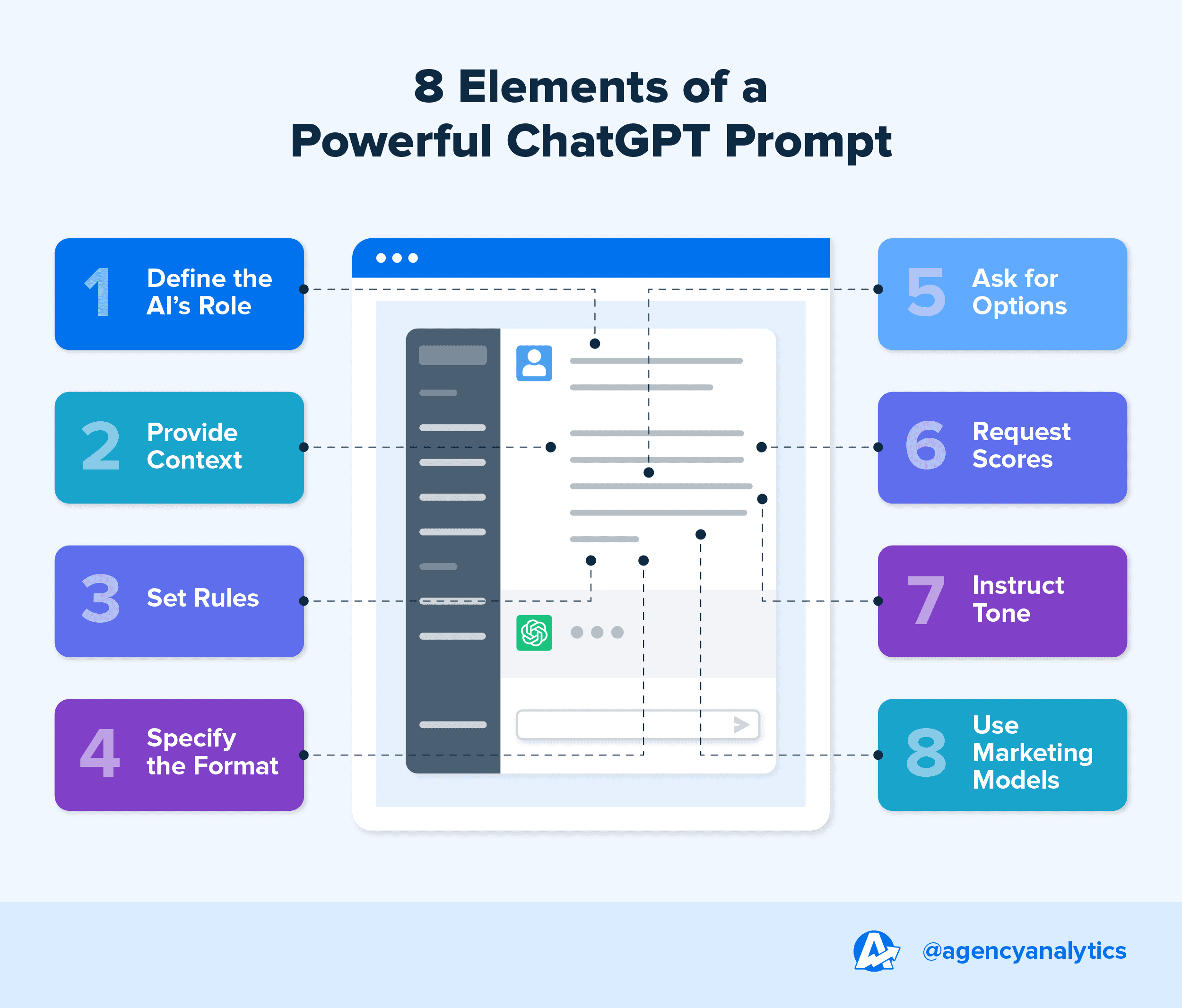
Want to go beyond the standard ChatGPT prompt? Read our in-depth post on how to craft powerful prompts using popular marketing models.
But no matter how efficient automation tools are, not all content creation tasks can currently be replaced by AI. A large amount of human creativity and judgment is still necessary with all AI-generated content to review for quality, errors, and emotional intelligence. This may change down the road as we await the emergence of artificial general intelligence, but AI is not quite there yet.
Test everything. Invest in R&D like young agencies never have, and older agencies haven't had to since Web2 and digital tools entered our marketplace. Learn how to input the best prompts and edit the AI output.
Bill Hipsher, President, Hurrdat
Web Development and Hosting
Currently, many back-end AI tools help web developers speed up processes. In 2024, human web developers will use AI when they’re frustrated or need a quick solution.
I would use ChatGPT whenever I felt stuck installing a plugin on a WordPress site, and I needed some guidance. I pasted in snippets of code, and it actually helped me work through a challenge.
Brock Murray, Co-Founder and COO, seoplus+
Consider this scenario: Your client finds a broken link, the site throws 502 errors, and you don’t know where to start. Leaning on AI software helps provide some guidance and direction you may not have thought of on your own.
Companies like Wix have created new AI-based services to build websites with the click of a button. However, humans still need to input choices, give guidance and direction, and optimize them.
Coder/Software Developer
Advanced automation tools produce code faster than humans. Although ChatGPT wasn’t initially designed to write code, it can fully assist software developers with coding tasks. Using machine learning, it comprehends and generates code snippets based on specific inputs it receives. Although it generates actual programming codes, human oversight is still needed to ensure the code is free of errors.
Agency owners may hire fewer employees to complete the same number of coding tasks, but for now, AI will remain an enhancement and not a replacement for coders' and developers' job roles.
Translation Services
If your agency does a lot of business spread across multiple geographic markets, you may have an in-house or freelance translator to ensure brand consistency across languages. As we’ve already explored, AI translation tools now provide impressive results, quickly and accurately translating text into various languages. Since automation tools learn from large amounts of data, their ability to recognize and interpret different languages continuously improves.
However, it’s not time to let go of your human translator just yet. Currently, you’ll still want to have eyes on AI-generated translation before publishing to ensure that cultural nuances have not been missed and to guarantee that the copy is as compelling as possible (and not just an exact 1:1 translation).
Human Resources Management
Repetitive HR tasks can now be streamlined with AI-powered tools, like resume screening. ATS (Applicant Tracking Systems) has been able to do this for a while, although perhaps not with today’s level of sophistication. Artificial intelligence helps by matching candidate qualifications with open roles at your agency using specific prompts.
AI HR chatbots are also being used to match current employees with access to HR information like benefits and company policies.
Take the example from the HR chatbot called Mya. It streamlines communication with freelancers and provides information on PTO policies for full-time employees.
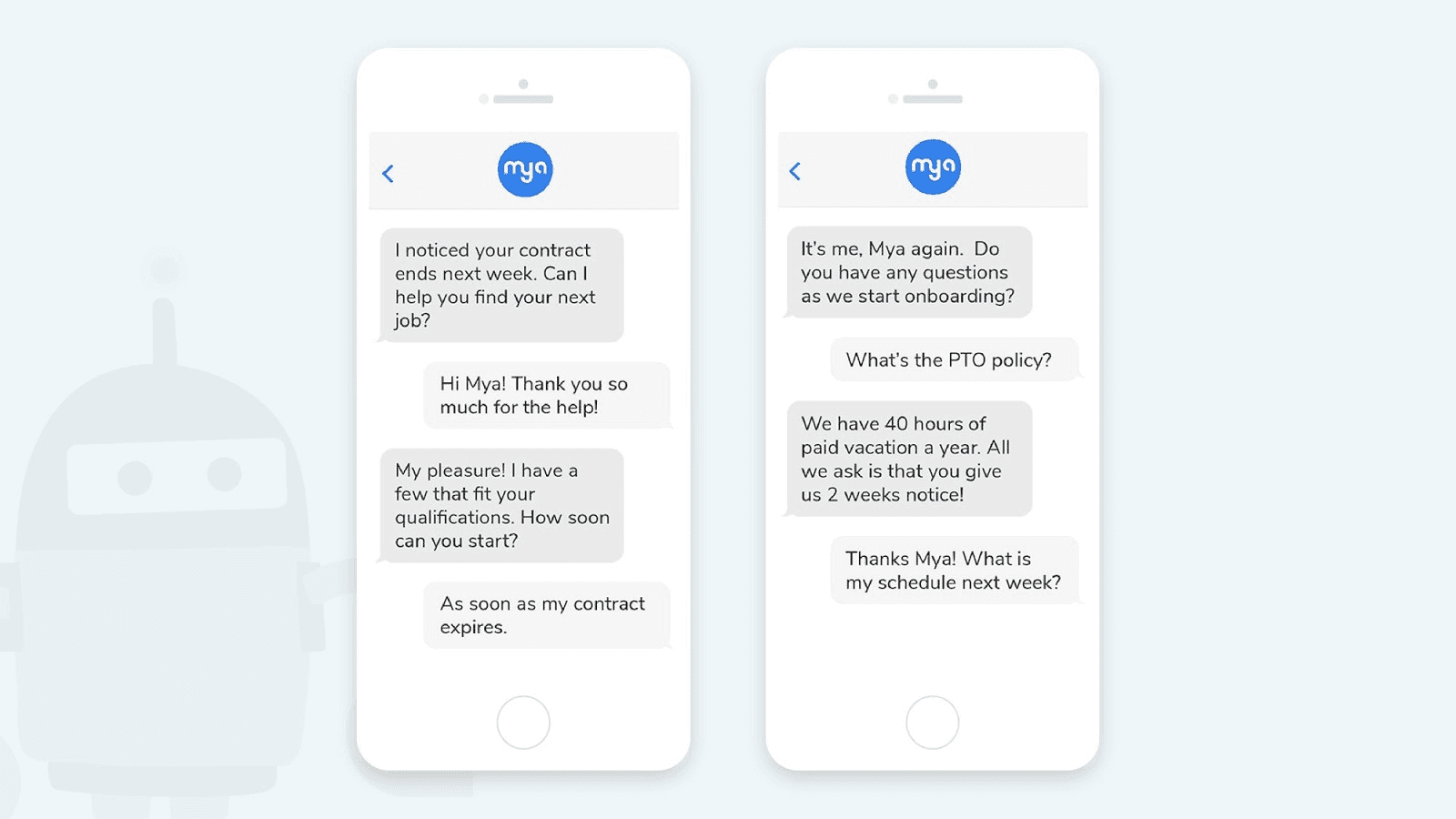
While AI tools can streamline and automate many HR tasks, they will unlikely replace HR personnel entirely. HR professionals are largely responsible for employee relations, conflict resolution, and decision-making, something AI does not yet have the social or emotional intelligence to execute in a way that a human would.
Strategic Planners
Whether you’re creating new marketing strategies for your clients or strategies for growing your marketing agency, artificial intelligence helps streamline the process.
For example, public relations managers ask ChatGPT to use predictive analysis to better understand customer behavior and buying habits. This reveals new avenues for your agency to pursue, helping your agency create marketing strategies that generate a personalized experience and increase conversions.
Think about other platforms that do something similar. Netflix, Google, and Instagram always suggest products based on their customers' previous experiences.
With access to tools that automate, monitor, and organize tasks and data on your behalf, strategic planners have more time to spend developing creative and cutting-edge strategies to fuel business growth.
AI tools are a great addition to our team. Will they start replacing the actual workforce? Not anytime soon, but we incorporate AI in our daily tasks to make everybody's job more efficient.
Anatoly Zadorozhnyy, Director of Search, Softline Solutions
Now, picture how this role might diversify across your agency’s organizational chart. For each unique domain, there could be an AI Strategist specializing in that field. We may see roles such as AI Strategist - Graphic Design, AI Strategist - Content, etc.
These experts, skilled in understanding and harnessing AI capabilities, will be crucial in developing strategies to effectively use AI for marketing goals and will guide agencies in adopting AI technologies to drive efficiency and generate superior results for clients.
💡This may also lead to the emergence of a specialized niche of marketing agency. Let’s call them an “AI marketing agency.” These agencies would create a symbiotic relationship between AI and human expertise. In these agencies, AI strategists would set up generative AI models based on their client’s specific business goals and needs.
SEO Specialist
SEO agencies are adapting their strategies for AI-powered search engines.
Going beyond traditional tactics to get their client’s content to appear in snippets on the SERPs, SEO agencies are currently researching ways to make it into a chatbot’s answers. While it may be surprising, many SEO specialists are finding that the results being put forward in organic search vary substantially from those picked up by chatbots.
Moving forward, in addition to meeting existing Google requirements, a client’s website will also need to be optimized so that chatbots will deliver the brand in response to user questions. Experiments with long-tail keywords and phrases that are being picked up by AI chatbots will likely become part of SEO strategies in the future.
What Jobs Will AI Create at Marketing Agencies?
While many people wonder, "What jobs will AI replace?" those with an eye to the future wonder, "What jobs will AI create?"
People will fear that this tech will take their job. Unfortunately, those people who do not adapt will fall behind those who do, bringing less value to the company.
Bill Hipsher, President, Hurrdat
The job market is poised for significant transformation as AI continues to evolve. We’ve only begun to scratch the surface of the vast array of roles that AI will generate across industries, including marketing. Instead of fixating on the fear of AI taking away jobs, we should embrace its immense potential to create millions of new opportunities.
A quick search on LinkedIn shows that there are already over 4,000 AI engineering jobs in the U.S. alone.
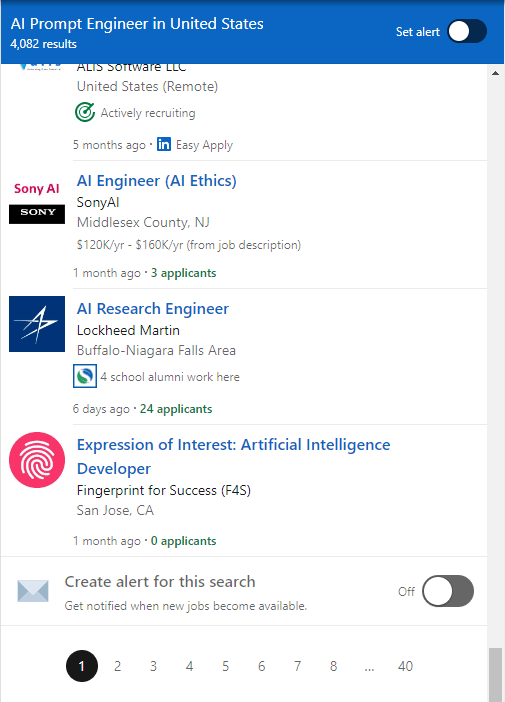
Strategic skill investment becomes crucial to navigate this changing landscape. By adapting and upskilling ourselves, we harness the power of AI to augment our capabilities, foster innovation, and unlock unprecedented levels of productivity in the workforce.
Here are some of the top artificial intelligence jobs that will likely soon be coming to a marketing agency near you:
AI Educators/Trainers
AI educators help agencies learn how to use AI tools and implement them into daily workflows.
AI trainers train the AI tool itself. An AI tool needs to be trained in things like the tone you want it to use, the audience you want it to address, the format of response you’re looking for, and more. An AI trainer trains the tool, analyzes the responses for accuracy, ensures the quality meets specific standards, and fine-tunes the outputs.
AI Prompt Engineer
AI Prompt Engineers write text-based prompts that go into the back end of AI tools, helping the tools generate a blog post or sales email copy with the proper tone and accurate information.
This role seems particularly promising; estimates indicate that AI Prompt Engineers can earn a salary of up to $335K without a computer engineering background.
There is also a significant opportunity for marketing agencies to tap into this need and provide prompt creation solutions for clients.
Chatbot Designers
There will be a growing need for creative individuals to develop conversational agents and chatbots, crafting engaging and personalized user experiences that mimic human assistance–all while leveraging AI-powered natural language processing.
As the field of chatbot design evolves, chatbot designers must stay current with advancements in AI technologies and conversational user interfaces. They continuously monitor user feedback, conduct usability testing, and iterate on the chatbot's design to enhance its performance and optimize user satisfaction.
Summary & Key Takeaways
While AI will continue to shake things up, it also presents a great opportunity to enhance your marketing agency’s efficiency, productivity, and overall client experience.
For a final say on the future of marketing agency jobs, we turned to the source itself and asked ChatGPT for its opinion. Here are its predictions for which agency jobs will be replaced, enhanced, and created following the AI revolution.
What Jobs Will AI Replace? | What Jobs Will AI Enhance? | What Jobs Will AI Create? |
|---|---|---|
Data Entry Clerk | Market Data Analysis | AI Specialist |
Manual Reporting | Content Marketer | Chatbot Script Writer |
Junior Copywriter | CRM Manager | AI Ethics Officer |
Live Chat Agents | Email Marketer | AI Software Engineering |
Media Mix Modeling | Software Developers | Machine Learning Engineer |
Even though ChatGPT is saying it’s coming for some of these jobs, instead of focusing on potential loss, it’s time to start exploring and embracing the opportunities AI provides.
It's essential to note that our success with AI implementation is not solely attributed to technology. The driving force behind our growth has been our team's adaptability, innovation, and dedication to mastering AI tools and applying them creatively to meet our clients' needs.
Jessica Crist, Production Manager, High Five Media
Although there are still pros and cons to adopting AI analytics tools, it’s a very exciting time as we see job growth emerge from this technological advancement and the way digital marketing agencies execute strategies for their clients.
The key is to stay in the loop about any industry changes, embrace new technologies, invest in deep learning regarding AI's capabilities (and drawbacks), and adapt during turbulent times.
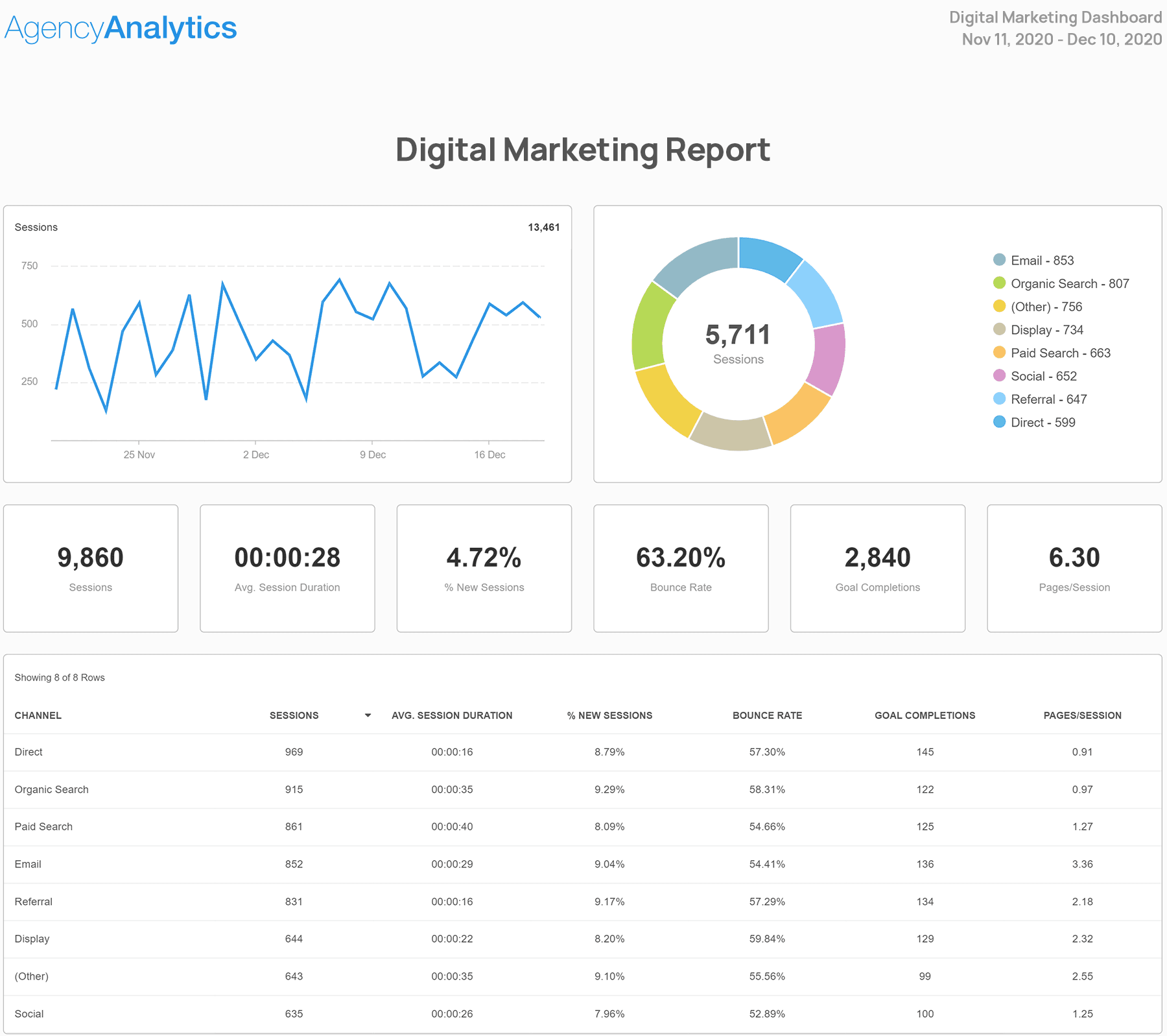
Put your client reporting process on autopilot with automated data retrieval to keep your agency ahead of the curve. Get started today with your free 14-day trial.

Written by
Richelle Peace is a writer with a degree in Journalism who focuses on web content, blog posts, and social media. She enjoys learning about different topics and sharing that knowledge with others. When she isn’t writing, Richelle spends time teaching yoga, where she combines mindfulness, movement, and her passion for wellness.
Read more posts by Richelle PeaceSee how 7,000+ marketing agencies help clients win
Free 14-day trial. No credit card required.



